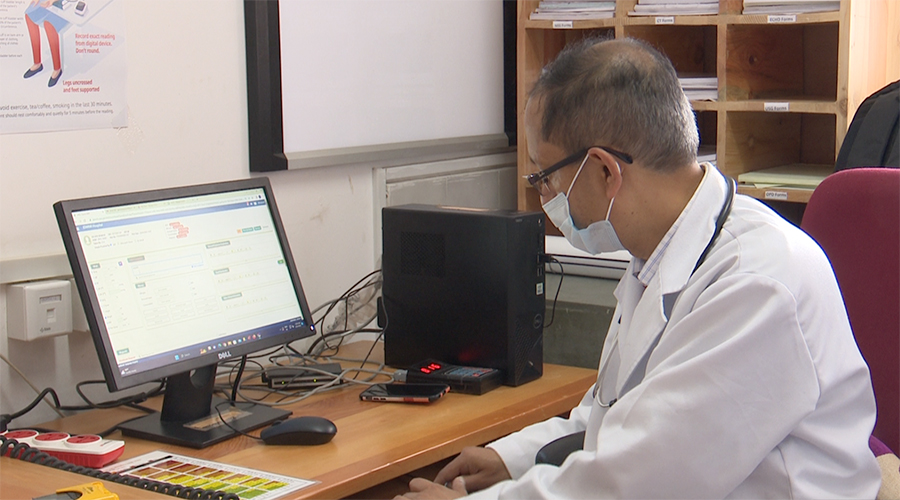
The National Referral Hospital has recently introduced the Electronic Patient Information System or e-PIS to enhance healthcare services by digitising medical records. However, the hospital is unable to utilise the system to its full capacity as the health officials encountered network connectivity issues. The health ministry, the hospital and the GovTech agency are working collaboratively to improve the network.
Today, a doctor is able to cater health services through the system to only a few patients in a day. This is because the network fluctuates.
“Currently, e-PIS is not being used in all hospital departments. There is a need to improve the network there. So, JDWNRH, the Ministry of Health and the GovTech agency are working together to upgrade the network,” said Garab Dorji, chief ICT officer of the health ministry.
He added that the ePIS system is a complex and new technology that may take some time for patients and healthcare personnel to adapt.
“e-PIS is a new system that is rolled out in the hospital and our doctors are using such a complex system for the first time. So, there will be a delay if services initially. For the first time, when the patient history is recorded, it will take some time, but their subsequent visits will be much more efficient and the service will be faster.”
The e-PIS system requires patients to present proof of identity, such as a Citizenship Identity Card or voter card and work permit, to access healthcare. This feature will also enable the provision of healthcare services to foreign workers.
After showing the CID or voter card, the doctor enters the identity card number into the system. If the patient is visiting the hospital for the first time after implementing the system, the doctor asks the patient about the medical history and records it in the system. This will ensure that the next time, as soon as a doctor enters the identity card number, all the medical records will be available.
However, health officials added that if a patient does not want to disclose certain information, the doctor who diagnosed the particular disease can maintain confidentiality through a setting in the system.
But most of the patients like elderlies are not aware of the system.
“What are the solutions for the people who do not know English? The main problem is for people like us who do not know English, unlike the present generations,” said Sonam Phuntsho, a patient.
“I think the new generations won’t have much of a problem. But older generations like us would feel lost,” said Dendup Chophel, another patient.
Despite the minor setback, the hospital remains optimistic about the potential of ePIS. Once the network issue is resolved, the system will be accessible in all departments of the national referral hospital transforming the way healthcare is delivered in Bhutan.
Karma Samten Wangda
Edited by Tshering Zam









